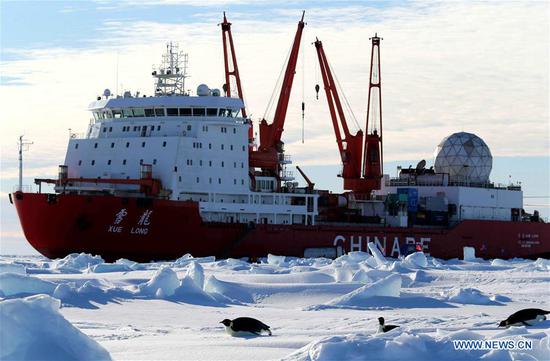
A photovoltaic power project has been set up in Chenta village of Huzhou, Zhejiang province. (Photo: XINHUA/XU YU)
"If these targets are met, China will make significant progress toward its commitments under the Paris agreement on climate change to peak carbon dioxide emissions in 2030 or sooner," Pechet said.
He was speaking shortly after the UN Intergovernmental Panel on Climate Change delivered its direst warning yet on the future of the global climate.
In the panel's report, released on Oct 8, some of the world's leading climate scientists warned there are only 12 years for global warming to be kept to a maximum of 1.5 C. Beyond this, even half a degree will significantly worsen the risks of drought, floods, extreme heat and poverty for hundreds of millions of people around the world, they said.
The authors of the landmark report said urgent and unprecedented changes are needed to reach the target, adding that this is affordable and feasible even though it lies at the most ambitious end of the Paris agreement that pledges to limit the global temperature rise to between 1.5 C and 2 C.
The Special Report on Global Warming of 1.5 C was approved by the panel at its meeting in Incheon, South Korea, in early October and was one of the major scientific papers being presented at the UN Climate Change Conference in Katowice from Dec 2 to 14, where most governments are reviewing the Paris agreement.
Charles Bedford, regional managing director for Asia-Pacific with global environmental organization The Nature Conservancy, said, "The report is a wake-up call and a reminder for everyone on what is at stake if we stick to business as usual."
As a global leader in tackling climate change, the Chinese government has long been proactive and focused on its targets and commitments, with policies that the country has already moved forward on, he said.
Bedford added that China has for many years said it will remain focused on working toward its low-carbon development goals regardless of what other countries such as the United States decide to do.
The panel's report followed the release on Oct 1 of a study by the Chinese Academy of Sciences warning that economic losses caused by drought could cost China $47 billion a year-more than double the current estimate-if global temperatures rise by 1.5 C above the preindustrial baseline.


















































